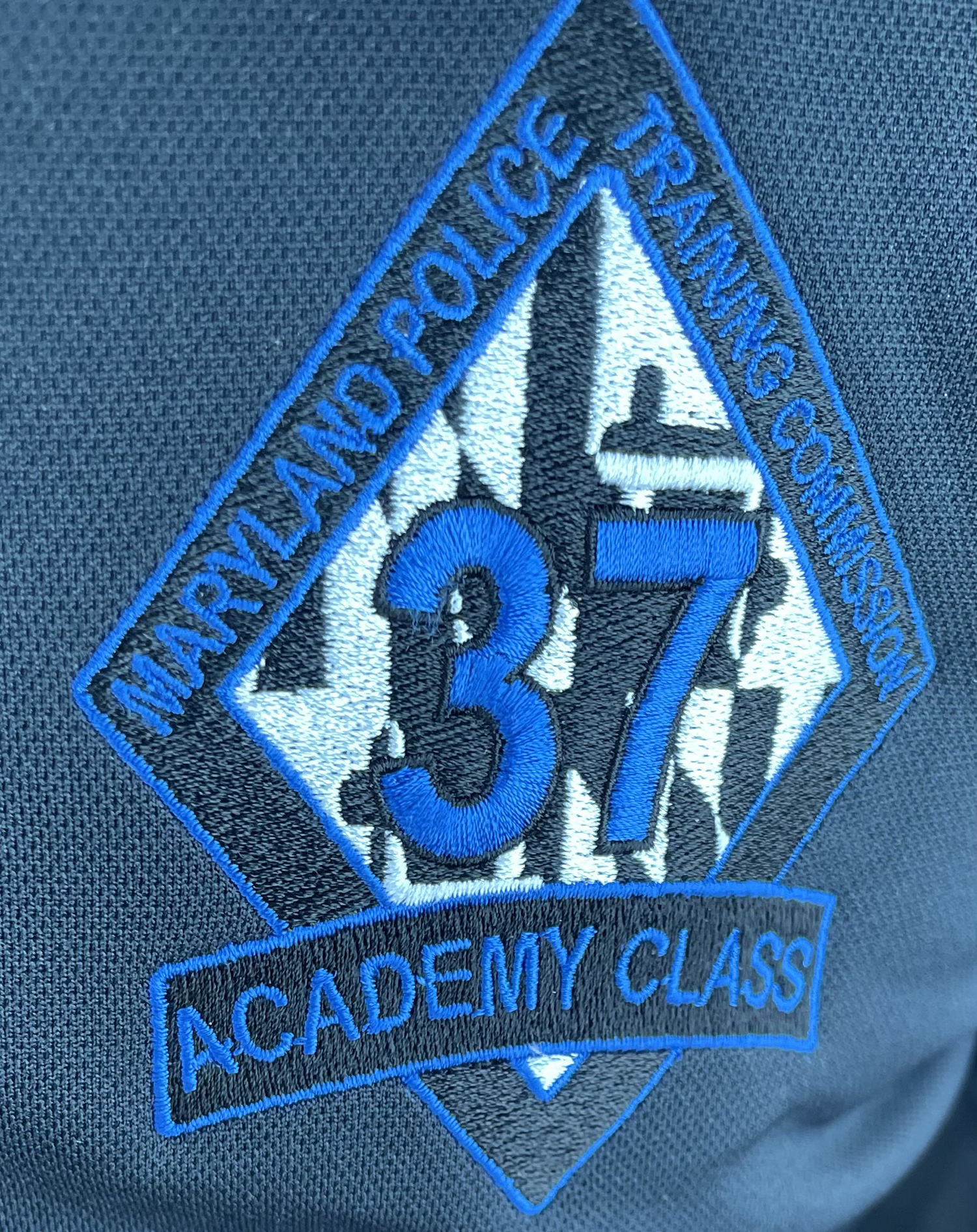Prospective UMB Police Officers Go Through the Police Academy
May 09, 2023 Carin Cardella
This behind-the-scenes series explores how new officers are selected to go to the police academy, what it’s like to go through the academy, and their reflections on the journey.
This is Part 2 in a series about the process to become a UMB police officer. This behind-the-scenes series explores how new officers are selected to go to the police academy, what it’s like to go through the academy, and their reflections on the journey. Read Part 1 here.
Now nine weeks into the Maryland Police and Correctional Training Commissions (MPCTC) police academy, University of Maryland, Baltimore Police Department (UMBPD) police recruits Stephen Howard and Mikal Diggs have experienced joy, frustration, and even physical pain.
By the end of Week 3, the recruits started constitutional and criminal law classes. Diggs described the courses as “a lot of information to take in,” but both recruits agreed that it was important information that will help them in their law enforcement career.
“The academy is not really what I expected,” said Howard, the youngest member of Academy Class 37. “It’s more of a learning environment than a physical environment.”
Howard has been living in the dorms at MPCTC. After just three weeks, he said the recruit class was starting to feel like family — and that includes playing pranks on one another.
“The Maryland Natural Resources Police came around with a megaphone and siren that woke me up,” he said. “It really caught me off guard!”
In Week 4, Howard and Diggs completed a 1.5-mile hike with their class — “with a twist.” Each person had to carry a 165-pound dummy, a cooler, two rifles, and rope. While the recruits initially struggled to complete the task, they were ultimately successful. By the end of the hike, the group had become even closer.
“The physical training has been intense,” said Diggs, who currently has the top GPA and earned a perfect score on his communications exam in Week 5.
“The academy is tough and can be a bit overwhelming at times, but it’s still amazing because it challenges me every day with something new,” Howard added.
Both recruits send weekly updates about their time in the academy. While they mention learning marching techniques, emergency vehicle operations course (EVOC), defensive tactics, 5-mile runs, and more, their updates have often focused more on the camaraderie and emotions of their experience.
“This place has become like a second home to me,” Howard wrote at the end of Week 5. “The instructors are like mentors who guide you and give advice to lead you on the right path.”
These relationships foster a culture in which the recruits learn how to become a 21st-century police officer. UMBPD’s strategic plan follows the six pillars of 21st Century Policing:
- Building Trust and Legitimacy
- Policy and Oversight
- Technology and Social Media
- Community Policing and Crime Reduction
- Training and Education
- Officer Wellness and Safety
“To be a progressive, community-oriented police department, we have to have employees who believe in these pillars and follow our University’s core values,” says Assistant Vice President for Public Safety and Chief of Police Thomas Leone, MSL. “These recruits are learning how to be our next generation of police — police who are empathetic, compassionate, and community-focused.”
Being in the academy comes with its challenges. In Week 7, the recruits were sprayed with oleoresin capsicum (OC) spray — or pepper spray. “It was by far the worst feeling ever,” Howard said. This training, though painful, teaches recruits what it feels like to be sprayed with OC spray and allows them to see how they would function in a controlled setting.
OC spray is made from an oil from plants in the chili pepper family (which is why it’s commonly known as pepper spray). The spray causes inflammation to the eyes, nose, throat, and lungs, leading to involuntary eye closure, difficulty breathing, and burning of the face and skin. OC spray is publicly available, though weapons like OC spray are not allowed at UMB.
Two current UMBPD police officers also reflected on their experience being OC sprayed in the academy. “Nothing makes it better,” they said. “And when you take a shower later, the symptoms flare up again.”
The experience also helps officers to understand how to effectively use the less-lethal spray when they become a police officer. OC spray is just one tool officers can use in dangerous situations.
The recruits also learn skills to de-escalate situations before they become a danger to themselves or others. As the weeks progress, Howard and Diggs have learned how to approach vehicles and people, how to properly handcuff and transport a suspect, and how to write police reports.
Traffic-related incidents were the third cause of line-of-duty deaths for police officers in 2022, behind COVID-19 and firearms-related deaths. Fifty-six officers were killed in crashes and by being struck by a vehicle while outside their patrol car. Recruits take EVOC training to learn how to safely operate an emergency vehicle, defensive driving techniques, and factors that contribute to emergency vehicle crashes.
In Week 9, Howard was named as class leader. “It was not as easy as I thought it would be,” he said. “I had to make sure everyone was on time and had all of their equipment.” Howard said he even had to help resolve a conflict between fellow classmates but was able to learn from the experience.
“The academy has been a great learning experience and environment,” Diggs said. The recruits have now completed one-third of the academy and are expected to graduate in September.
Continue to follow along as prospective UMB police officers Stephen Howard and Mikal Diggs progress through the MPCTC Police Academy.